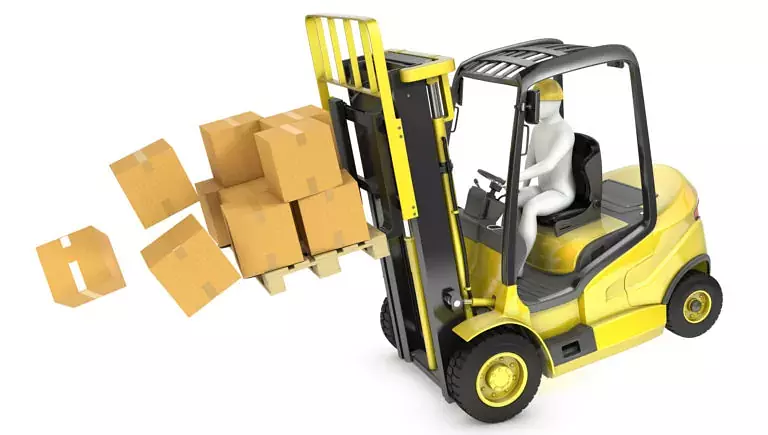 Everybody makes mistakes everyday–at home, at work. It happens. But most mistakes can be fixed, including those made while operating a forklift. Operating a lift truck requires skill, precision, education, and extra care and attention for safety measures. In the workplace on a daily basis, the most seasoned forklift operators make avoidable and easily remedied mistakes. Some of these errors include failing to inspect the machine or driving carelessly. While many of these mistakes are easily reparable, they are nonetheless worth bringing to attention. Here are five easily fixed forklift mistakes made every day on the job:
Everybody makes mistakes everyday–at home, at work. It happens. But most mistakes can be fixed, including those made while operating a forklift. Operating a lift truck requires skill, precision, education, and extra care and attention for safety measures. In the workplace on a daily basis, the most seasoned forklift operators make avoidable and easily remedied mistakes. Some of these errors include failing to inspect the machine or driving carelessly. While many of these mistakes are easily reparable, they are nonetheless worth bringing to attention. Here are five easily fixed forklift mistakes made every day on the job:
1) Failing to Check Tires
Many expects decree that checking tire pressure is a fundamental method to avoid accidents, assure proper usage and maximize gas economy. Under-inflated tires can result in poor traction which can ultimately cause accidents. On the contrary, over-inflated tires can blow out and put any forklift out of service in the most inconvenient time. Keeping an appropriate tire gauge handy and checking the pressure before each and every use can mitigate hazards. In the event a tire runs low on air or conversely has too much pressure, deflate or inflate to appropriate pressure to optimize handling and functionality.
2) Reckless Driving
According to Action Lift, reckless driving is one the most common mistakes made by forklift operators. Level of occurrence tends to be higher in newer forklift drivers, those less experienced. Driving at a safe speed does not have the appeal of swifter and expedient movements. We all want to get things done quicker, have the ability to move onto our next project. Despite however many trainings are offered or participated in, it can be easy to drive faster if time is limited to complete a certain task. Which is why it is stressed that operators should drive only at recommended speeds for the maneuvers they are trying to make.
3) Ignoring Battery
Checking the battery level before operation is another imperative worth mentioning. Failing to do so can result in a loss of power in perhaps a critical heavy operation. Checking the battery is routinely easy. Simply inspect the terminals and check the power gauge prior to beginning operation.
4) Being Negligent with Brakes
Brake malfunction can cultivate calamity. It is important to address any brake issues as they emerge and as soon as possible. If a forklift operator notices the brakes getting softer and as a result they are forced to push harder to engage the brake system, this is a warning sign of a potential brake failure. In the event of this revelation, changing brake pads or calipers can take minutes. Nevertheless, putting this off or failing to do so can present a host of new troubles and toils.
5) Reluctance to Signal
Like many drivers on the road, many forklift operators fail to use their indicators to notify personnel which direction they are turning. Even if the indicators are malfunctioned at the current time, operators can still use hand gestures to convey intent. Nevertheless, many forklift drivers are negligent in this practice and this as a result causes numerous accidents. Before operating any forklift it is important to make sure the indicators are functioning properly. If the indicators malfunction during a project, use hand signals to convey intentions and direction and then repair immediately upon completion.
